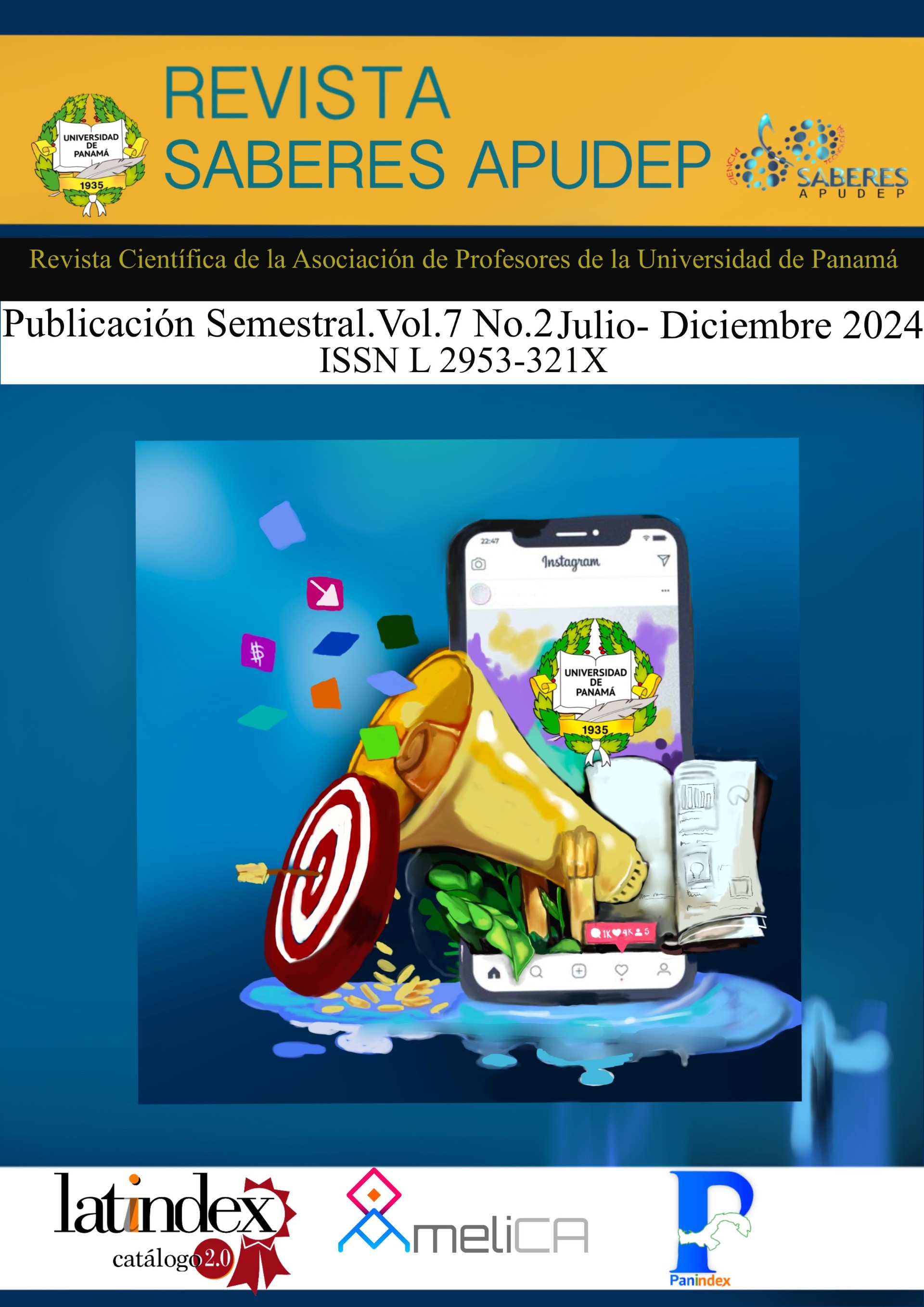

Copyright (c) 2024 Revista Saberes APUDEP

This work is licensed under a Creative Commons Attribution-NonCommercial-ShareAlike 4.0 International License.
The article focuses on the colloquial expressions that make up the speech of the inhabitants of the province of Los Santos in the Republic of Panama, a region that is characterized by its historical richness and unique cultural identity. Therefore, this study aims to explore the linguistic heritage of the santeños and how it is motivated by geographical, sociocultural, contextual and historical aspects. This research presents a non-experimental field design based on informal conversations, review of existing literature on the topic; as well as the interpretation of concepts and specific definitions related to linguistic variation. The findings indicate that linguistic variation in the province of Los Santos presents dynamic and diverse characteristics, motivated by internal factors of the systemic structure of the language as well as external factors, such as the geographical, sociocultural, historical and individual situation of its speakers. Regarding the linguistic variation in all the communities of the province of Los Santos, it is evident in aspects such as: vocabulary, intonation, timbre, accent, pronunciation and other fundamental characteristics. This variation infers information about the origin, geographical origin, roots and customs of the speakers, as well as their social position and educational level. Furthermore, the use of the term "linguistic variety" to refer to more specific communities of speakers and specific communicative acts is significantly highlighted.